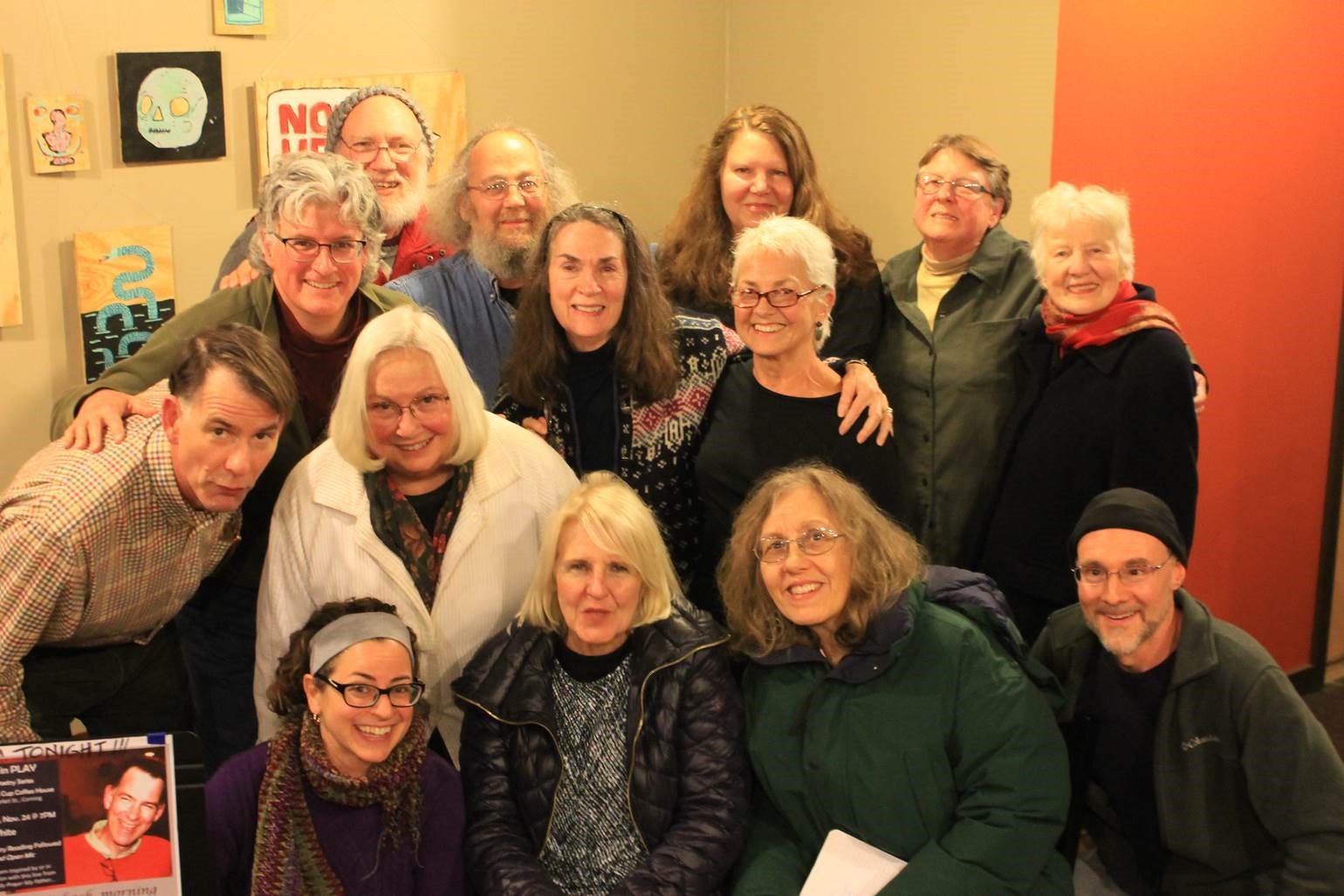Tamar Samuel-Siegel is the programs and outreach manager at the ARTS Council of the Southern Finger Lakes in Corning, New York. She received her BA in Creative Writing from SUNY Purchase in 2004 and has since worked and studied abroad, developed and delivered storytelling and ESL programming as an AmeriCorps service member, and, in addition to other public arts programming, carried out two poetry collaborative projects in her current position. Both were funded, and therefore made possible, by Poets & Writers.

As though it were a regular potluck arranged among intimates—that is how we begin to think of this new series of poetry readings called POETS in PLAY. In our rural community where a poetry reading might bring participants from an hour down the road, a reading is not a reading alone but, as my friend and fellow poet Mary sweetly names it, a gathering, a place for community.
The Tuesday before Thanksgiving, our second reader in the series, Bart White, arrives in town from Rochester, about two and a half hours from Corning. He brings his own camera. After Bart reads, he takes a first row seat for the inspired open mic that follows. A featured element of the series, the inspired open mic asks readers to respond to a prompt provided by the poet. As readers speak in some way to Bart's line, "I want it back, morning with miles to walk..." the room draws more closely around us.
We are, in fact, gathered: gathered by the images spoken to us by the featured poet, gathered by the resonance of his prompt line, gathered in sharing the ways in which experience and language marry in the unique cadences of our voices. But once the second portion of the evening closes, nearly every person in the room showing up to the mic a poet, Bart gathers us once more in a way that I have never seen a poet do at any other reading I have attended. He gathers us—familiars and strangers—for a family photo.
Each poetry reading—even those bound within a series—has its own timbre. Some poets tell stories, as Bart did, from a place of such emotional immediacy that the room builds a silence on which the emotion may ebb. Others present cerebral motifs, revealing the chaotic turning mechanics of their thoughts—a production that leads to the simplest of surprises—a familiar feeling, a reflection of such precise incisiveness it cauterizes as it cuts.
What excites me, however, about this particular series POETS in PLAY is that the inspired open mic asks both the featured poet and the audience to take a step closer to one another—not only to hear one another’s lines, but to meaningfully, to intentionally, interpret them as related.
Here we are: stepping in.
For more on POETS in PLAY, visit the website.
Photo: Group shot at Bart White reading. Photo credit: Beth Bentley.
Support for Readings & Workshops in New York is provided, in part, by public funds from the New York State Council on the Arts, with additional support from the Friends of Poets & Writers.





